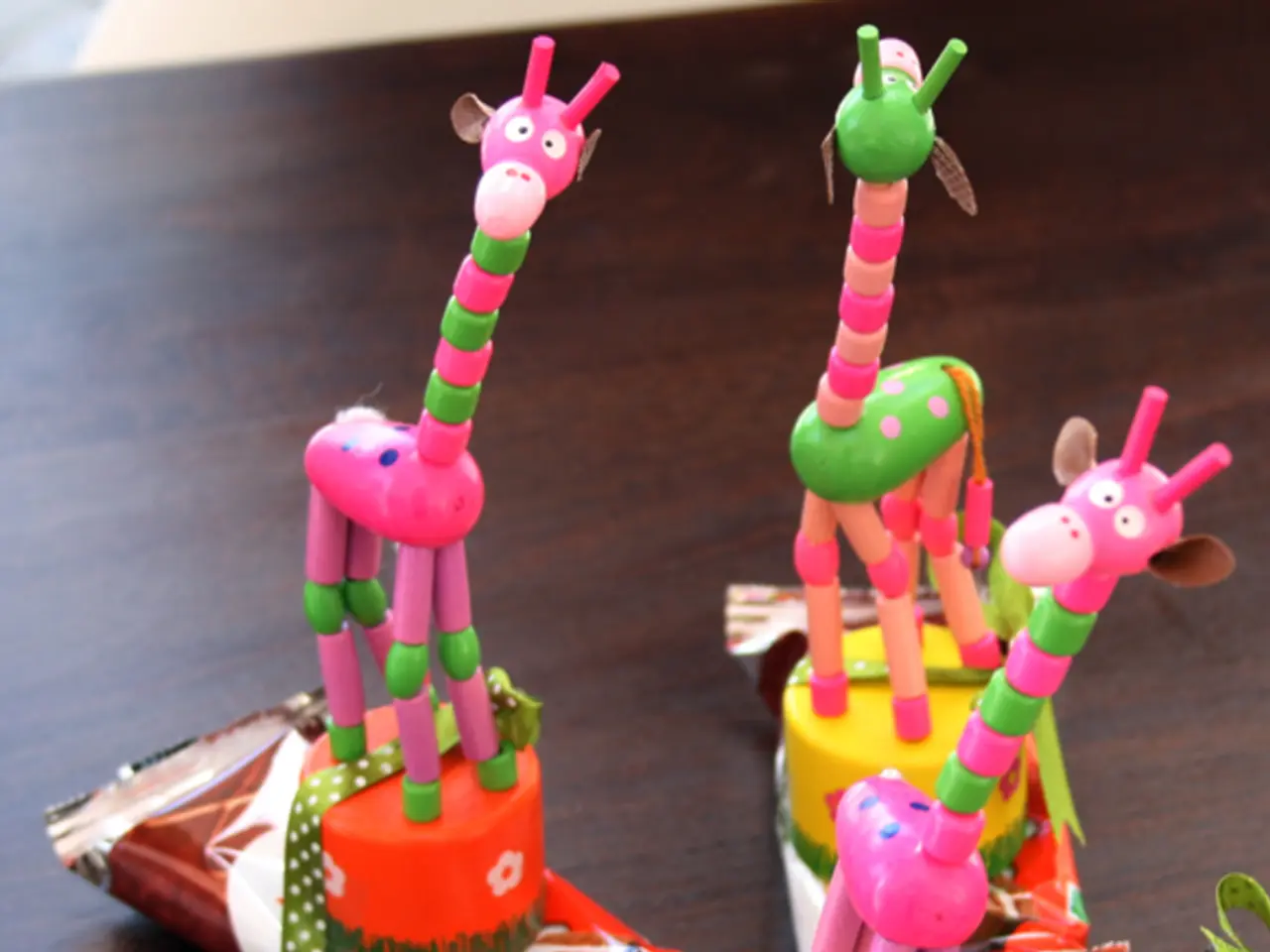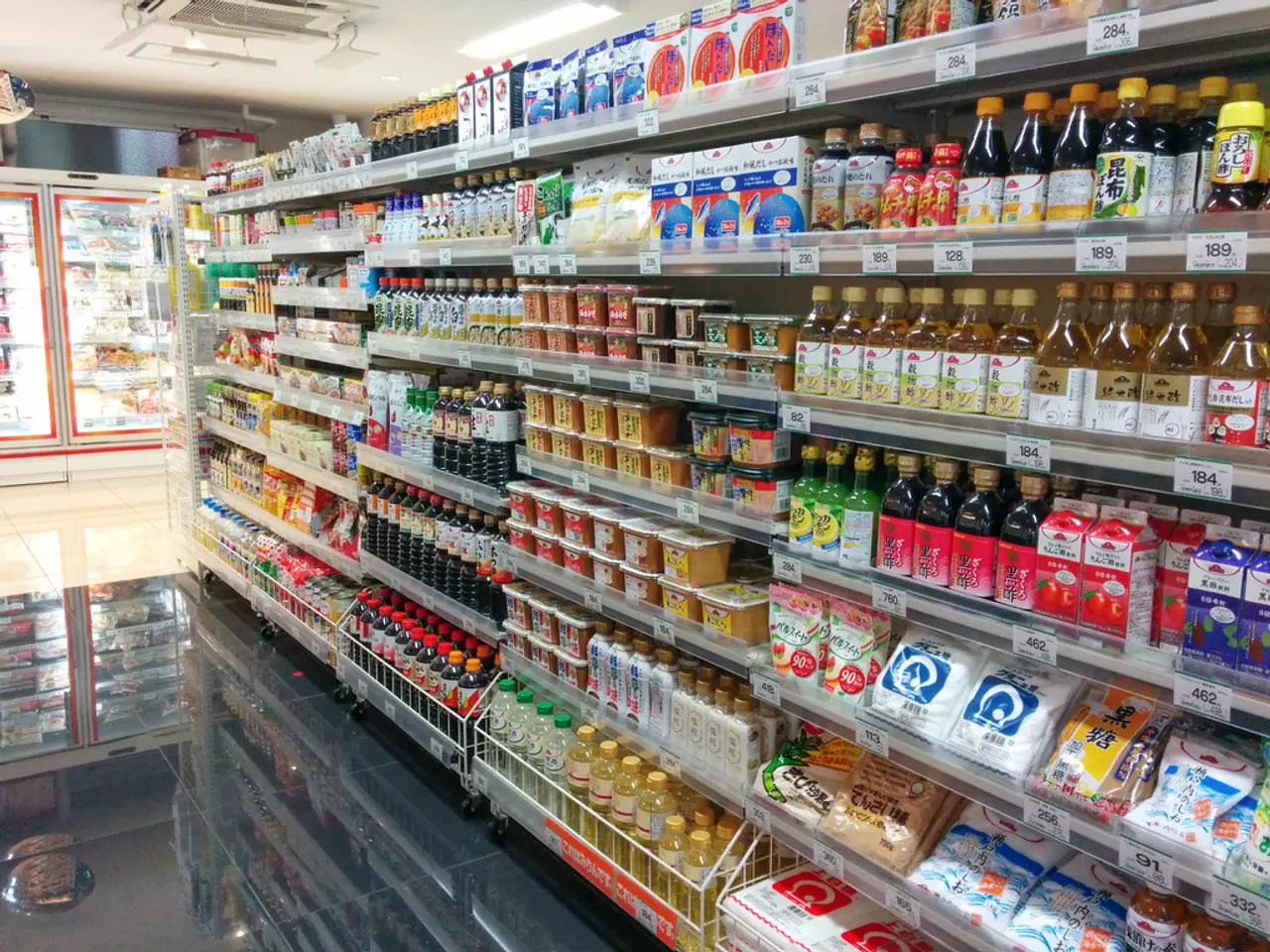Chinese youth are boosting their spending to maintain a positive lifestyle despite a slowing economy
HONG KONG - The young folks in China might be tightening their belts when it comes to big-ticket items like cars and homes, but they still manage to find some cash for milk tea, toys, and other fun stuff.
Life ain't easy for young Chinese these days. The economy's growing slower than a sluggish snail, the US-China trade war is being a nasty party pooper, and the job market's cutthroat competition ain't helpin' matters much. Youth unemployment hovers around 15% on average, with over 12 million new graduates pouring into the market every year.
Feelin' like they're surrounded on all sides, young Chinese consumers are finding solace in smaller purchases that bring a bit of joy and happiness into their lives.
"I spend my cash to keep myself happy," said Kitty Lu, a 23-year-old student in Melbourne, Australia. "It might sound a bit reckless, but I got a number in my head."
Lu spends most of her cash supporting her fav celebs and occasionally treating herself to "little luxuries" like blind-box toys or the insanely popular Labubu monster figurines.
"I'm not really into these toys, but it's more about having a blast with my buds when we open the box together to see what we got," Lu explained.
This trend of emotional consumption, as it's called, has been on the rise in recent years among young Chinese who care less about big purchases like houses and cars but embrace food and cultural products that offer an instant blast of feel-good vibes.
The Fudan Development Institute, a Shanghai-based think tank, reported that industries like films, games, and other emotional goods have seen average annual growth of about 12% since 2013. The entire market for emotional consumption is projected to surpass $270 billion this year.
Sippin' Tea and Livin' Easy
The beverage industry in China is one of the main beneficiaries of this consumer trend, with sales projected to grow up to 6% this year, according to S&P Global.
Mixue, a bubble tea chain known for its cheap drinks, now has more stores worldwide – over 45,000 – than any other food and beverage chain, including McDonald's and Starbucks. In March, Mixue's shares skyrocketed more than 40% on its market debut in Hong Kong.
Mixue's success stems from its shrewd business strategy of affordable prices and rapid expansion, especially in smaller cities. Kelsey Yu, a 23-year-old student in Beijing, shared that she grabbed a bottle of lemonade from Mixue in the southern Chinese city of Jieyang for less than a buck.
"The drink hit the spot," Yu said. "It had a lot to offer, and it was cheap. Mixue's items are always better bang for your buck compared to many other local competitors."
As a self-proclaimed foodie, Yu drinks tea-based beverages at least once or twice a week and occasionally indulges when she's traveling.
"I usually grab some milk tea when I'm feelin' tired or just want to hang out and have a great time," she said. "But I got self-control, so I don't have it every day."
The Complicated Picture of Chinese Consumption
Despite the occasional concern from US officials that Chinese consumers aren't spendin' enough, the situation isn't as black-and-white as it seems.
Over the past quarter-century, China's consumer spending has grown an average of 8% or more each year, making it one of the highest-growing markets among major economies. However, investment has outpaced consumption, keeping it a relatively smaller part of China's overall GDP.
Chinese Premier Li Qiang acknowledged the need to boost consumption during a speech at the World Economic Forum's "Summer Davos" event in Tianjin, stating that China aims to become a "mega-sized consumption powerhouse."
Boosted by government subsidies, China's retail sales increased by 6.4% in May, the fastest growth rate since late 2023. Sales during the month-long 618 online shopping festival, which concluded on June 18, reached a record 855.6 billion yuan ($119 billion), up 15.2% from last year.
Young Chinese consumers, while budget-conscious when it comes to daily necessities, are willing to splurge on their hobbies and sources of happiness, according to state-backed research.
"I'd rather drop 300 yuan ($42) on an incredible meal," Yu said. "If the food's truly amazing, I reckon it's a steal. But if it's 300-yuan attire, I might hesitate."
Amid China's economic challenges, middle-class consumers are becoming less brand-conscious and opting for cheaper alternatives, said Yaling Jiang, founder of ApertureChina, a consumer research firm.
"Now savin' is hip, and seekin' value is hip," Jiang explained. "I think the downturn definitely changed the culture of spendin'."
Chinese mallgoers now spend their dough almost exclusively on the first and second floors, where food and beverage shops are concentrated.
"People are walkin' around the mall with a cup of milk tea or coffee," Jiang added, eyeing what's available in stores before going home to buy cheaper alternatives online.
China's luxury market, which accounted for almost a third of global sales, declined by 18% to 20% last year, according to a January report by Bain and Company.
"I think there's less focus on compare-and-contrast of social status, and more focus on what brings them personal happiness," said Lynn Song, chief economist for greater China at ING, an observation that has also been seen elsewhere.
Consumers in China are both trading up and trading down, depending on the sector. According to Shan Guo, a partner at Hutong Research, "They're not buyin' luxury bags, but they're scoopin' up Pop Mart" Labubu toys. "Labubu can be quite pricey."
Despite concerns about slower economic growth in China and elsewhere, Lu, the Melbourne student, said her friends are still "more than happy to spend for fun."
"They're not big spenders," she said. "They're just enjoyin' life."
- The beverage industry in China, particularly bubble tea chains like Mixue, has experienced significant growth due to an increase in emotional consumption among young Chinese consumers.
- In an effort to boost consumption, Chinese Premier Li Qiang acknowledged the need for China to become a "mega-sized consumption powerhouse."
- Despite a focus on budget-conscious spending, young Chinese consumers are willing to splurge on personal sources of happiness, such as purchasing expensive meals or items like Labubu toys.
- The luxury market in China, accounted for almost a third of global sales, declined by 18% to 20% last year, while industries like food, films, games, and other emotional goods have seen impressive growth.




